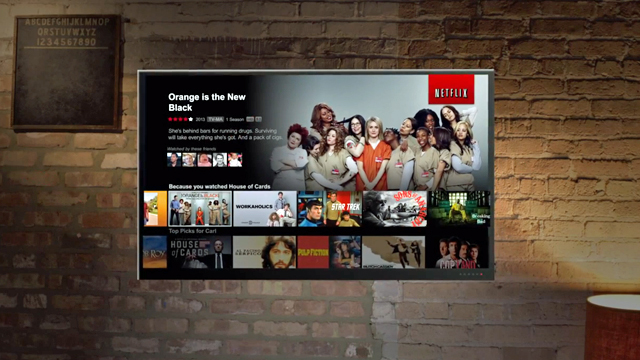Death of net neutrality could mean higher Netflix prices
Bad news for Netflix in 4K

Net Neutrality has been the hot topic of the week, after a US court rejected rules that previously meant ISPs had to treat all net traffic equally.
This upshot of this is that services such as Netflix, which use a higher amount of bandwidth, could be charged significantly more to provide their content.
And this, of course, could mean that the cost will be passed onto us. "Goodbye, open Internet," Jennifer Fritzsche, an analyst at Wells Fargo & Co, told Bloomberg.
"There's definitely a risk that Netflix customers will have to pay more, though it will probably take at least a year for it to take effect."
- On December 14, 2017, the US FCC (Federal Communications Commission) repealed net neutrality rules, sparking an outcry among startups, NGOs, but also the public in general, in the US or abroad. VPNs can actually allow you to get around Net Neutrality controls set by ISPs. Here is a list of the best VPN providers we've tested.
Net so fast
But don't panic just yet. The FCC has said it's considering an appeal, and Netflix told TechRadar that it has no plans to increase its pricing right now.
Still, it's probably not great news as Netflix plans for streaming in 4K - something that's going to be chomping up bandwidth like nobody's business.
And of course it's not just Netflix on the line. Other bandwidth-heavy services such as YouTube could also be forced to make changes down the line.
Sign up for breaking news, reviews, opinion, top tech deals, and more.

Hugh Langley is the ex-News Editor of TechRadar. He had written for many magazines and websites including Business Insider, The Telegraph, IGN, Gizmodo, Entrepreneur Magazine, WIRED (UK), TrustedReviews, Business Insider Australia, Business Insider India, Business Insider Singapore, Wareable, The Ambient and more.
Hugh is now a correspondent at Business Insider covering Google and Alphabet, and has the unfortunate distinction of accidentally linking the TechRadar homepage to a rival publication.